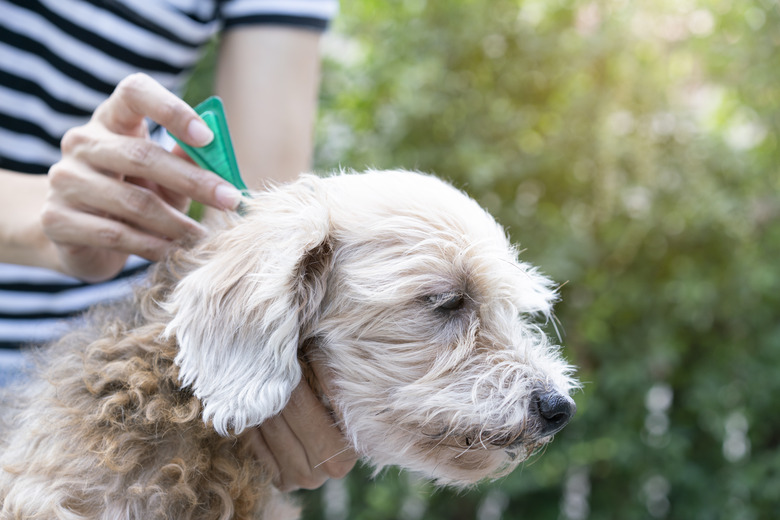How To Get Rid Of Fleas On A Nursing Dog
Fleas are horrible pests that can wreak havoc on your pregnant or nursing dog's health if they are allowed to proliferate on her coat. Fortunately, there are many gentle ways you can remove them from the fur and prevent them from coming back without harming her puppies or affecting her milk.
For nursing mother dogs, some medications are off limits when it comes to flea removal and prevention, but you can easily bathe your dog to get rid of those itchy pests. Plus, some vet-approved medicines are safe for use with nursing dogs.
Flea medicine for nursing dogs
Flea medicine for nursing dogs
One of the quickest ways to get rid of the fleas on your dog's coat is to give her a chewable Capstar tablet. This over-the-counter medication contains nitenpyram as its active ingredient and is considered safe for nursing dogs.
To give your nursing dog Capstar, simply feed her the tablet or put it in her food. Make sure that her puppies don't access this medication, though, because it's only safe for them when they are older than 1 month and are 2 pounds in size. Once you give your dog a tablet, it starts working within 30 minutes. The medication kills all the adult fleas on her body, but it won't kill the flea eggs or larvae, so it's not a long-term solution.
My dog has fleas and just had puppies
My dog has fleas and just had puppies
If your dog just had puppies and she is infested with fleas, you'll need to get the fleas off her coat and off her little ones as soon as possible. To avoid using any harmful chemicals on your nursing dog, you can bathe her using dish soap to remove the fleas from her coat quickly and safely.
The dish soap breaks down the waxy exoskeleton of the fleas and helps to drown them when you bathe your dog. Make sure to allow the soap to sit on your dog's coat for a few minutes before thoroughly rinsing the fur to remove the fleas. Wipe down the facial area with a damp washcloth to get any fleas that scurry over there.
Bathing in dish soap is a safe flea treatment for puppies too. Just be sure to keep the puppies warm during and after the bath.
Lasting flea treatment for nursing dogs
Lasting flea treatment for nursing dogs
To provide lasting flea protection to nursing dogs, you can apply a topical treatment, like Frontline Plus. This medication contains fipronil and (S)-methoprene, which work together to immediately kill the fleas on your dog's coat. It then keeps killing the fleas on the coat. Unlike nitenpyram, this medication kills adult fleas, flea larvae, and flea eggs continuously when used monthly. You apply this product between your dog's shoulder blades and allow it to stay on the coat.
Most importantly, Frontline Plus is considered safe to use on nursing and pregnant dogs. In addition, it kills chewing lice and ticks too. Unfortunately, you can't use this product on puppies younger than 8 weeks of age, so you'll need to use a separate product on the puppies if they are infested too.
Once your dog is no longer nursing her puppies, usually within the first eight weeks, it's safe to treat her with another long-lasting flea medication. Plus, it will also be safe to treat her puppies as well to prevent any further flea infestations in your home. Consult with your vet to determine which option will work best for the mother dog and her puppies.
Removing fleas from the environment
Removing fleas from the environment
To prevent fleas from reinfesting your nursing dog or infesting her puppies if you're using a long-lasting treatment on her, you'll need to clean up the fleas in her environment. Wash all of your dog's bedding in hot water, including the bedding she shares with her puppies, to kill the fleas and remove flea eggs.
Thoroughly vacuum the areas where your dog likes to hang out and toss away the vacuum bag or wash out the canister afterward. You may also want to contact an exterminator to treat your home with a pet-safe product.

